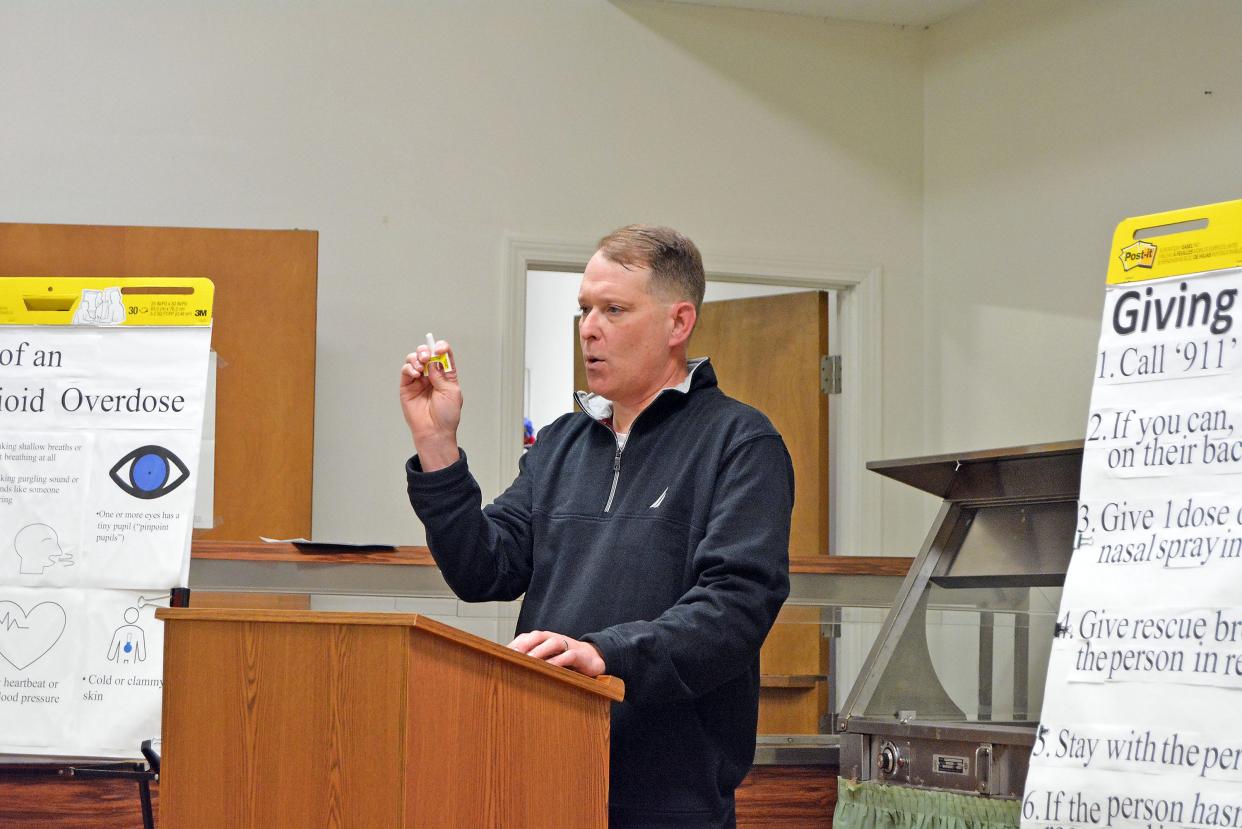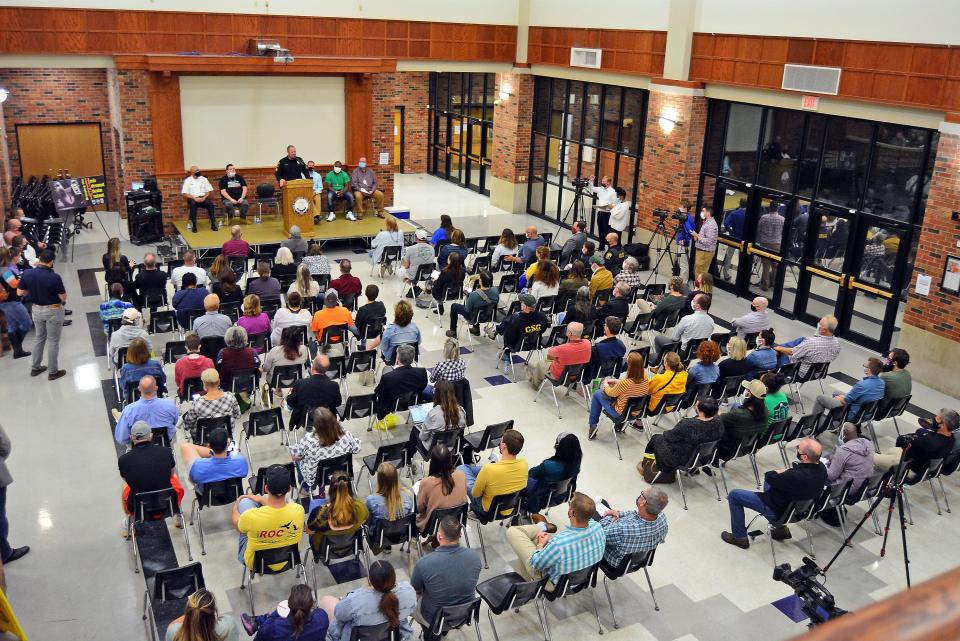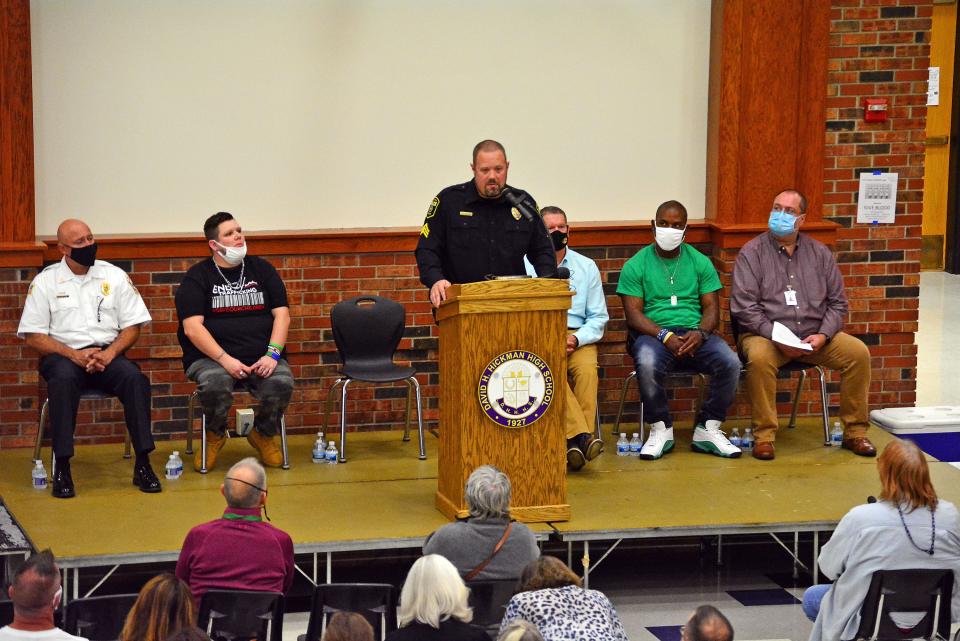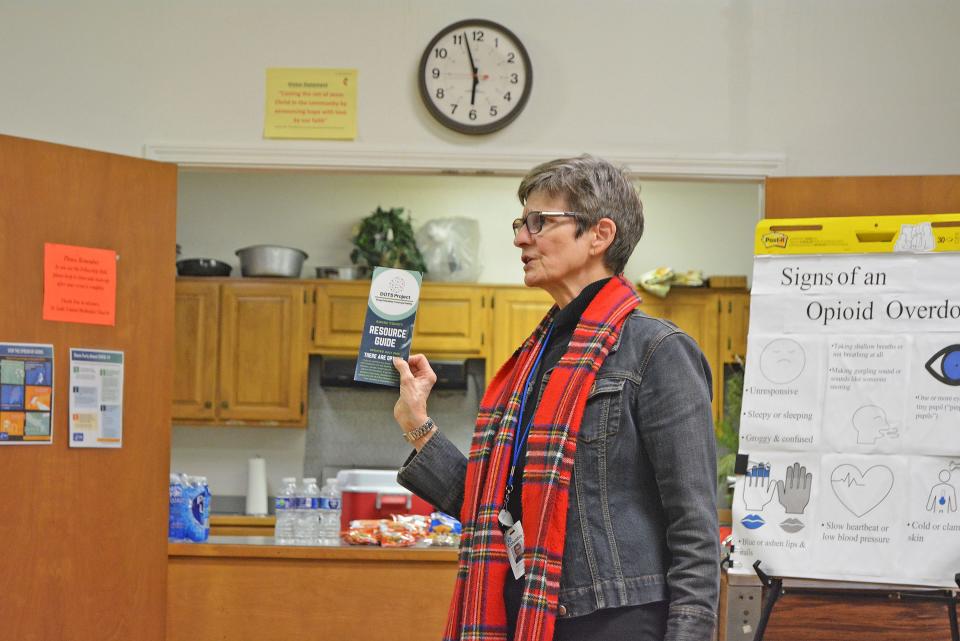'An overdose nearly every week': A look at fentanyl deaths in Boone County

The U.S. Drug Enforcement Agency has a slogan in relation to fentanyl: "One pill can kill."
How does this apply in Columbia and Boone County? At a traffic stop Sept. 20, 815 fake Percocet pills were found by the Columbia Police Department where one field tested positive for fentanyl. In court documents, arresting officer Bradley Overton noted Columbia sees drug overdose deaths almost weekly.
Overton's statement was not that far off.
Columbia/Boone County Public Health and Human Services through the Boone County Medical Examiner has logged 13 suspected or confirmed drug overdose deaths as of June 30, based on dispatch data the department provided to the Tribune. This means from Jan. 1 to June 30, there was a drug overdose death every other week.
If this trend continues through the end of year, Boone County will see at least 26 overdose deaths, which comes close to the 30 reported deaths in 2022 and 31 in 2021 in dispatch data.
There are some caveats to overdose data collection, wrote Heather Harlan, PHHS health educator.
"Public health as a whole often has difficulty getting the data needed. Agencies often don't have a uniform mechanism in place to collect data on the impact on public health," she wrote.
The data provided from PHHS from dispatch reports also notes that prior to 2020 there was not a dispatch code for overdoses, there may be a lag in cause of death determinations due to medical examiner backlogs and the dispatch data does not include instances where Narcan was used, but no first responders were called. This also explains the discrepancy between 2022 reported deaths at 30 compared to the Missouri Department of Health and Human Services, which counted 34 fentanyl overdose deaths for Boone County.
Need Narcan? PHHS has it
PHHS is continuing its efforts to provide free Narcan, also known as Naloxone, which is a medicine that counteracts an opioid overdose. Its most recent monthly training and giveaway was Tuesday at Second Missionary Baptist Church.
The department is able to provide the free Narcan through an Overdose Data 2 Action grant and works with Boone County Overdose Response Coalition on the monthly training events.

"The health department is working to provide Naloxone to anyone at our front desk who requests it during business hours (Monday through Friday)," Harlan wrote. "PHHS staff will also work with institutions, agencies, and organizations to provide trainings at no cost as requested and as we are able.
"We find people are more willing to intervene if they have some training and they are more likely to use the Naloxone effectively."
While PHHS does not have the resources to provide trainings more than once a month, more resources and grants are becoming available after the various opioid settlements.
Another town hall likely; School of Hard Talks
Drug overdose deaths nearly doubled from 2020 to 2021. It led to a town hall meeting at Hickman High School. The Boone County Overdose Response Coalition is preparing for another town hall meeting in the spring, Harlan wrote.
PHHS also is working to enhance its connections with schools for education programs on opioids. It currently has flyers for students and parents up in schools answering five common questions, such as what fentanyl is, where it is found, how deadly it is and that Missouri is a Good Samaritan state, meaning there are not legal repercussions for reporting a drug overdose.
Limited openings are available for PHHS' "School of Hard Talks" program with meetings 6-8 p.m. Oct. 3, 10, 17 and 24 via Zoom.
The program aims to improve communication skills for families, including parents of teens and adults who live with mental health and/or substance use conditions. Boone County adults can register by emailing Heather.Harlan@CoMo.gov or Monica.Stokes@CoMo.gov. If registration is full, there will be other opportunities at a later date.
How to use Narcan
Narcan is administered similar to other nasal spray medications. Narcan prevents opioids from attaching to brain receptors and negates what already is there. It takes about two to three minutes to work, and its effects wear off in about 30 to 90 minutes.
If there is no change three minutes after administering a dose, it may be necessary to administer a second dose.

Narcan causes near-immediate drug withdrawal symptoms, which is why it is important for a person to be put on their side with their head supported, known as the recovery position.
Rescue breaths may be needed after the first dose of Narcan, and tilting a person's chin up to open the airway may be necessary as well. If 911 is called, let the dispatcher know a dose of Narcan was administered.
To administer Narcan:
Remove the foil backing from the package;
Place the tip of the nozzle into a nostril, making sure your fingers touch the nose;
Push the plunger to administer the entire dose.
Signs of an opioid overdose include:
Breathing will be slow or absent;
Person is not moving;
Lips or fingernails may be blue;
The person may be choking, or you may hear a gurgling sound or snoring;
Cold, clammy skin;
The person will not wake up or does not react to a vigorous sternum rub; and
Tiny pupils
Even if you are not sure a person is having an opioid overdose, it is OK to give a dose of Narcan.
Statewide and Central Missouri data
Missouri DHSS breaks down overdose deaths between opioids, heroin, non-heroin opioids (fentanyl) and a combination of stimulant and opioids. Statewide there were 2,181 overdose deaths in 2022, where a majority (1,536) were from fentanyl.
A breakdown of the data also was reviewed by the University of Missouri St. Louis for regions in Missouri.

More: Narcan distribution aims to save community lives from opioid overdoses
The Central Region, which includes Boone County, is the only region in the state that saw fewer opioid deaths in 2022 (194) when compared to 2021 (211), UMSL reported.
While the death rate was 2.5 times more for Black residents than white residents in Missouri, based on UMSL data, Missouri HHS notes white men were the most killed by overdoses in 2022.
Fentanyl caused 67% of all overdose deaths in Missouri in 2022, UMSL reported.
From October 2021: Half of this year's drug overdose deaths recorded in Columbia have occurred since Aug. 1
Charles Dunlap covers local government, community stories and other general subjects for the Tribune. You can reach him at cdunlap@columbiatribune.com or @CD_CDT on Twitter. Subscribe to support vital local journalism.
This article originally appeared on Columbia Daily Tribune: Fentanyl overdose deaths in Boone County occur nearly every other week

